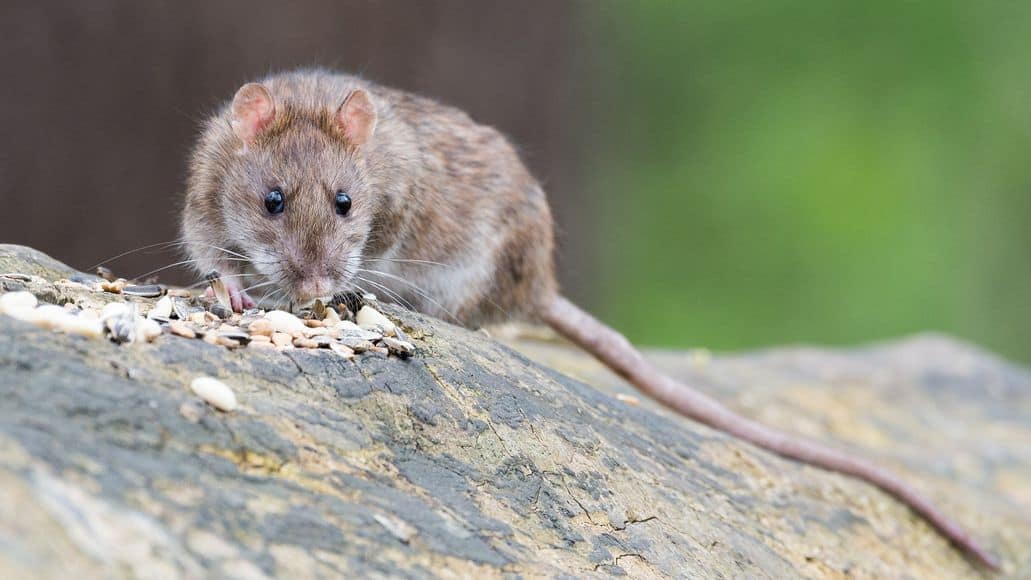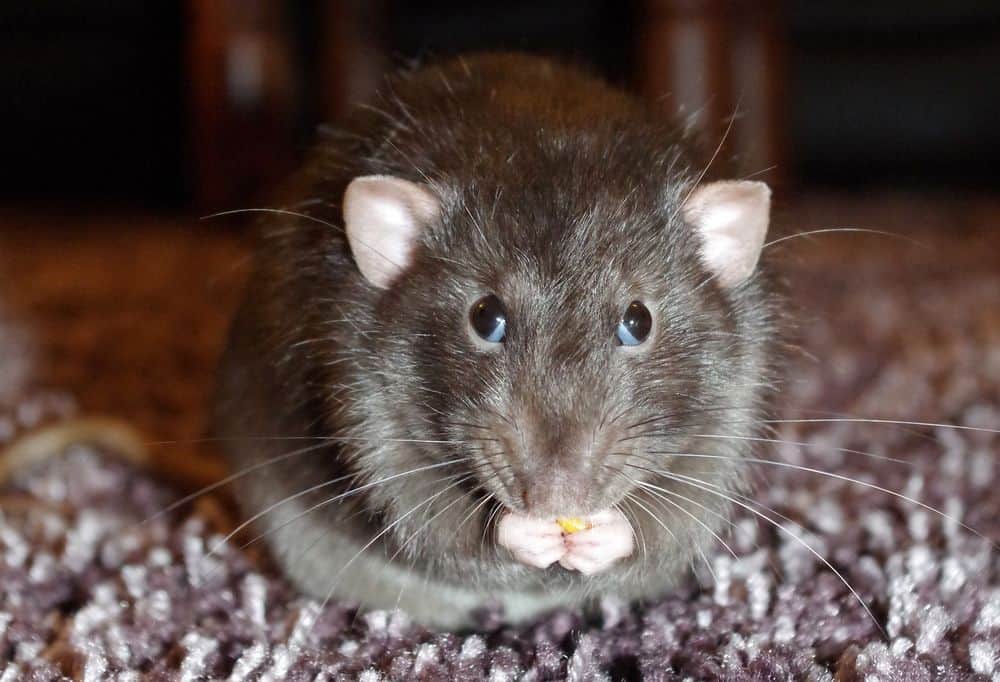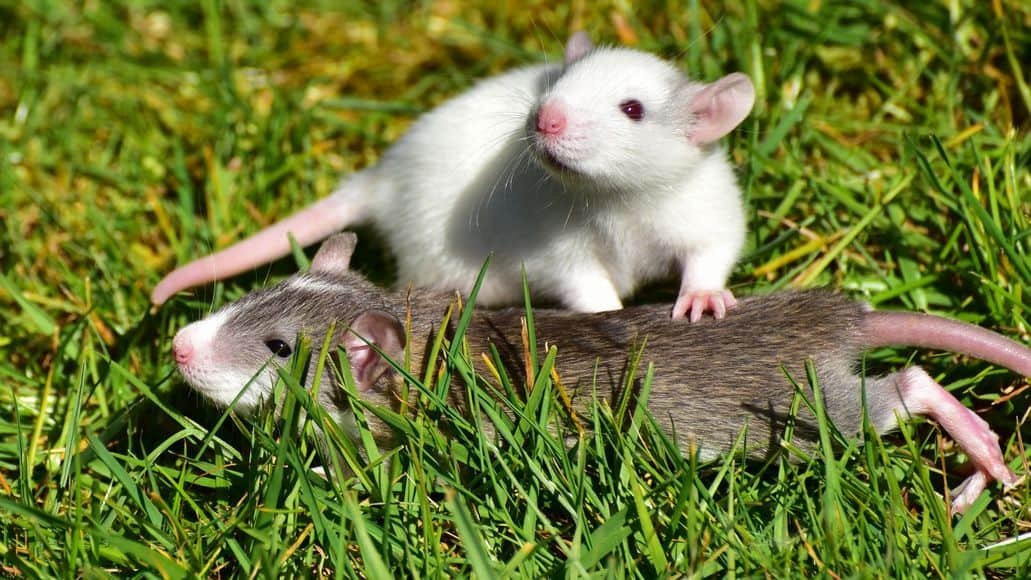
At times they seem utterly fearless.
If you own one, it is only natural to wonder if a Yorkie would make a good hunting dog, despite its small size.
You might not expect it from such a cute dog, but their personality often contradicts that cuteness.
Even so, the truth about Yorkies and hunting may still surprise you.
It goes way back to their beginnings, and the prevalence of rats during the industrial revolution.
Contents
Can Yorkies Hunt And Kill Rats?
Yes, Yorkies were bred to be ratters, killing mice and rats in small spaces. They were even used for hunting. Terriers are experts at killing animals that live in dens or burrows.
Yorkies have a long and illustrious tradition of big stories told with elegance, flash, and attitude. Read more to know more about the rat-killing days of Yorkies. We will also give tips on what to do if your Yorkie kills a rat.
Yorkie Hunting Rats

Rats are actually the reason the Yorkie became a distinct breed. Rats brought disease, destroyed crops, infested homes and businesses. These rodents made life miserable for humankind for most of history.
In the mid-nineteenth century, England was in the middle of the Industrial Revolution. It needed people to run the new machines. Many Scottish families were lured to English cities with offers of simple factory jobs. They brought scrappy little rat hunting dogs, aptly named Scotch Terriers, with them.
Yorkshire Terriers were already quite prevalent at the time, and they had already proven themselves as ratters. They are good at ratting mines, factories, homes, and fields.
This adaptable little dog was also hunting foxes, badgers, and other small game. The working class had it tough. This terrier had to carry its weight and more.
Most people bred dogs to serve them or the towns or villages in which they lived. Dog breeding records were lax or nonexistent during this period. Only true breed enthusiasts held some records.
People and animals both struggled during the mid-nineteenth century. For the first time in history, people were leaving the rural life of the farms and moving into towns and cities.
Rats also arrived in towns and multiplied as quickly as they could. Dogs were needed.
A good ratting dog was quicker and had more motivation for the job than a cat. Most cats will kill a mouse or two in order to eat, but not for the sake of killing, as dogs do.
Ratting competitions started in Great Britain as a lower-class pastime, though I am sure a high-born Count or two took part in them as well.
Dogs were put in a ring or pit with many rats during those competitions. Observers bet on how many rats each dog would kill in a certain amount of time, usually 8-10 minutes.
Yorkie Facts

The Yorkie is one of the most common dog breeds today. Despite their size, they have prominent personalities.
They are just about 9 inches tall at the shoulders and weigh between 5 and 7 pounds. The Yorkie is considered a toy breed rather than a Terrier, because of its small size. The Yorkie shares many characteristics with the toy, such as being alert, active, clever, and curious.
Socialization Skills
The Yorkshire Terrier is a friendly dog that is far from shy. They are fearless and unafraid of anything. They are protective, especially when it comes to their families, and will bark if they feel threatened. As a result, they make excellent watchdogs.
Of course, while their barking can be a great feature, it can also be irritating. If you plan to get a Yorkie, you must be prepared for this. These dogs enjoy barking and you will want to learn how to stop a yorkie from barking.
Yorkshire Terriers and children get along well, especially if they grow up together. While Yorkies are tolerant of children, a child must understand how to play with and appreciate the dog.
If a kid is unintentionally disrespectful or bullying the dog, a Yorkie will not hesitate to snap at them. Can a yorkie kill a human child? It could kill a baby, but the chances of it happening are virtually zero. But not completely zero, so never leave your infant alone with your dog.
Yorkshire terriers, for the most part, do not get along with other species. But they can get along with other dogs if they have grown up with them. If you are living with other pets, make sure the dogs are well socialized.
Yorkies are not generally compatible with cats, regardless of how well socialized they are with dogs. And they never get along with rodents of any kind. Remember that the instinct of Yorkies is to hunt rodents. It is an instinct that is difficult to condition out of them.
Canine Intelligence

Yorkies are a very intelligent breed. They learn quickly when it comes to training. Simple obedience is easy for them.
They should be taught so that they grow up to be a credit to their breed. The last thing you want is a Yorkshire Terrier that is overly defensive, violent, and spoiled.
Shedding And Grooming
Yorkshire Terriers do not shed. However, they need to be groomed regularly. They have fine, silky hair that must be washed and brushed to prevent mats.
To keep hair away from the eyes, wrap the top with a rubber band or ribbon. If the dog’s long hair is too much work, you have to trim and groom it regularly.
Exercise
You must provide your Yorkie with the necessary exercise. Yorkies like to run every day and be taken for a pleasant 10 to 15 minute stroll at least twice a day. One longer walk works too.
If you cannot take your dog on walks regularly, you will notice that it is very busy indoors. Yorkies will find ways to entertain themselves.
Exercise is crucial for your dog’s physical development and overall health. It will help to ensure that your Yorkie lives for an average 14 to 16-year lifespan
You can also take your Yorkie to the vet for routine checkups so that it can be screened for common ailments.
What To Do If Your Yorkie Kills A Rat

The first thing you’ll want to know is if the Yorkie has caught a disease it can pass on to you or your family. Rats can carry a variety of diseases, but not all of them are harmful to dogs.
Hantavirus Pulmonary Syndrome
Hantavirus can infect dogs and cats, but it does not spread to humans. This infection usually begins with flu-like symptoms like headaches, muscle pain, and fever. Shortness of breath and other severe symptoms follow, and death is a possibility.
Hemorrhagic Fever With Renal Syndrome
Fever, hemorrhage, headache, abdominal pain, and acute kidney damage describe Haemorrhagic fever with Renal Syndrome (HFRS). It is a rodent-borne infectious disease caused by hantaviruses.
Leptospirosis
The Leptospira bacteria causes leptospirosis, which is a bacterial infection. Leptospirosis in dogs manifests itself in a variety of ways. Some infected dogs have no symptoms of illness, while others have a mild and transient illness that goes away on its own. Some experience severe illness and die.
Lymphocytic Chorio-Meningitis (LCM)
Lymphocytic choriomeningitis, also known as LCM, is a rodent-borne viral infection. It is triggered by the lymphocytic choriomeningitis virus (LCMV), a member of the Arenaviridae family that was first isolated in 1933.
Rat-Bite Fever
Another thing you should worry about is rat-bite fever. It infects the dog when it comes into contact with dead rats or eats something contaminated by a diseased rat’s feces.
Salmonellosis
Salmonellosis is an infection caused by the Salmonella bacteria that affects dogs. Gastroenteritis, spontaneous abortions, and septicemia are all common effects. This bacterial infection is also zoonotic, which means it can be passed from humans to humans.
Rats can spread disease through their blood. It is likely that if a dog kills a rat, infection will occur through the mouth. However, merely putting the rat in their mouth can spread bacteria if the rat’s fur is infected.
Even if the dog does not contract the disease, the bacteria or parasites may be transferred through the dog’s mouth to us.
This situation may seem frightening. It is crucial to note that several events need to occur for the disease to spread. Rats have the potential to be disease vectors, but that does not mean they will be. If your dog is properly vaccinated and dewormed, all of this is much less likely.
Regardless, if your dog has killed a rodent, you can take it to the vet. They will rule out any issues and provide prompt care in the unlikely event that an illness does arise.
How To Stop Ratting Behavior In Yorkies

Many factors affect a Yorkie’s hunting instinct. Some dogs may have very little desire to hunt to begin with. Other ratter dogs enjoy playing and chasing objects.
If your Yorkie loves to hunt, you will probably want to get they instinct tamed.
The most significant factor in preventing ratting is education. This does not mean reprimanding. Since the drive to hunt is a normal instinct in dogs, chastising them for acting on it would only confuse them.
It may actually contribute to problem behavior. Instead, you’ll have to teach them not to respond when they see small animals.
You can start with stuffed animals and work your way up. But you should ensure that no other animals are endangered.
After you’ve taught your pup, you’ll need to put it to the test. Ethologists and coaches do this. They have undergone extensive training.
It’s similar to the test that Greyhounds must pass to ensure they don’t chase small animals. Make an appointment with your veterinarian to schedule this procedure.
Finally, it is also a good idea to take preventative measures. Always keep your Yorkie on a leash while you’re out with it, particularly if it is likely to chase down potential prey. Keep it on a leash, until it learns to regulate its actions.
Some dogs can never learn to suppress this instinct properly. A muzzle can also help to prevent the Yorkie from eating anything it sees.
Yorkie Hunting Dog: Conclusion
Although Yorkies were raised to hunt rats, modern Yorkies cannot match their forefathers. They’re more like a toy dog than a working dog.
Ratting necessitates a high pain tolerance and a lot of gameness. Rats are actually quite difficult to kill and they can claw the dog’s ears or otherwise injure it.
Some people may keep Yorkies specifically for the purpose of eradicating rats. But if this is not the reason you have a dog, you’ll want to make sure you teach your pet not to hunt down rats and other small animals.
Leave a Reply